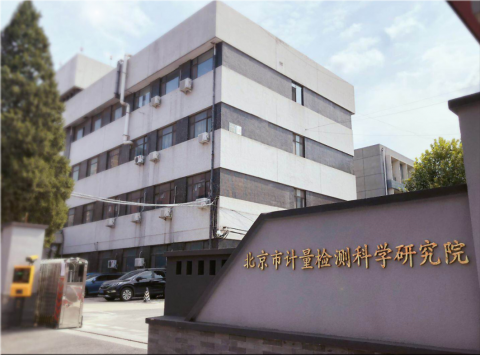Beijing Institute of Metrology (hereinafter referred to as “BIM”) is a technical organization of legal metrology directly subordinate to Beijing Municipal Administration of Quality and Technology Supervision and the technical entity of National Measurement and Testing Center in North China. Formerly known as Peiping Weights and Measures Verification Office, which was founded in 1931, BIM has nearly a century’s history. Its headquarters is on the east side of National Olympic Sports Center in Beijing.
As a provincial-level legal metrology verification authority authorized by the former General Administration of Quality Supervision, Inspection and Quarantine of the People's Republic of China (AQSIQ), it has acquired the metrological certification of Certification and Accreditation Administration of the People’s Republic of China (CNCA) and is a calibration / testing laboratory recognized by China National Accreditation Service for Conformity Assessment (CNAS). BIM owns 10 national type evaluation laboratories authorized by the former AQSIQ and internationally recognized laboratories of fuel dispensers and gas meters authorized by OIML. The metrological standards formulated by BIM cover ten major metrological subjects and are used in nearly 1,000 verification, calibration and test services.
BIM has become a designated OIML certificate test authority of fuel dispensers and gas meters since 2006. The tests are carried out by the Pressure Gas Flow Laboratory and Liquid Flow Capacity Laboratory at the Thermo-engineering Flow and Process Science Institute as well as the Electronic Information Laboratory at the Electromagnetic Information and Satellite Navigation Institute.
BIM owns a complete set of fuel dispenser testing equipment. The large-volume high-and-low temperature performance test chamber can be used to test the metrological performance of fuel dispensers under maximum 60℃ and minimum -40℃, with the test conditions and equipment satisfying the requirements of the latest International Recommendations on fuel dispensers. There are 5 senior engineers and 3 engineers in the technician team engaging in the OIML certificate tests of fuel dispensers, who have worked on fuel dispenser testing and verification for years, with thorough knowledge about the technical specifications and verification regulations of fuel dispensers as well as abundant practical experience. In addition, BIM has always undertaken the formulation and revision work of technical regulations of fuel dispensers in China. It drafted the national metrology verification regulation and type evaluation program – JJG 443 Fuel Dispensers as the main drafter.
BIM started the verification and type evaluation work for diaphragm gas meters in 2000. Years of efforts and improvements have ensured that the type evaluation tasks of national key managed measuring instrument – gas meters are well performed with our test equipment. Standard bell provers are equipped with automatic sampling and inspection systems to eliminate the random errors of artificial reading. Also, seal testers are used to increase the scope of seal tests to 200kPa; and, the adoption of inclined-tube micro-manometers has improved the measuring accuracy. Technicians at the laboratories have participated in many international and domestic communication activities in these years, and accumulated rich experience in gas meter testing, studies and comparison of flow standard facilities, and the formulation of regulations and standards. As arranged by the former AQSIQ, they have participated in the translation of OIML R 137, R 31, R 32, R 6 and other International Recommendations on gas meters. Many laboratory members have visited Germany, the Netherlands, Australia and other developed countries to learn their advanced expertise and received several training on testing technologies in Germany, so that BIM has a good master of the technological features and development trends of gas meters in the world.
